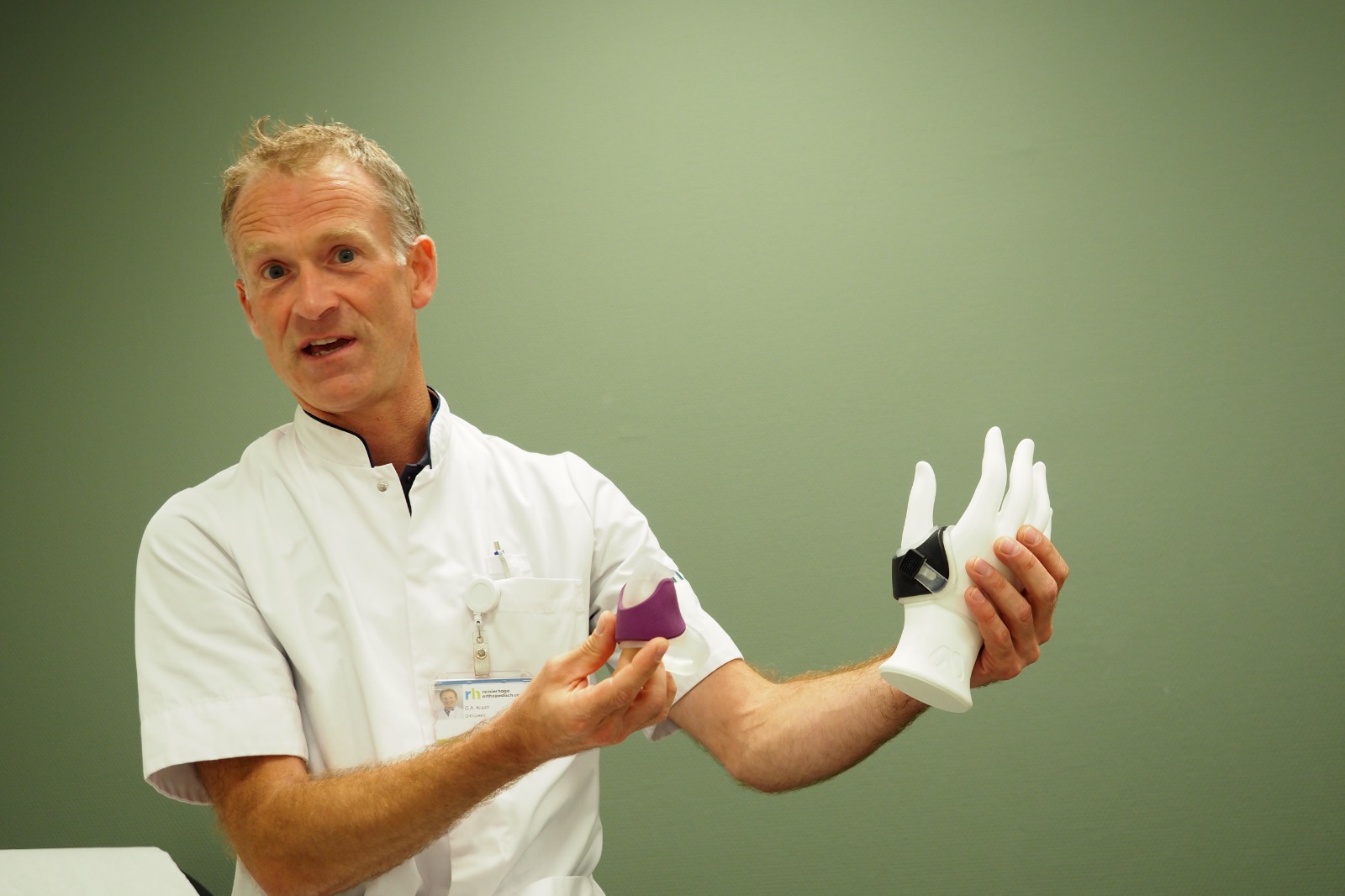The Patient at the Center: A New Chair for Innovative Hand and Wrist Care
Hand and wrist complaints, often caused by conditions such as osteoarthritis, rheumatoid arthritis, or RSI, affect one in three people in the Netherlands. These issues significantly impact the quality of life for patients, often leading to reduced work capacity and a complicated care pathway. To address these challenges, TU Delft, the Reinier de Graaf Hospital, and the Reinier Haga Orthopedic Center (RHOC) have established a new chair titled: “From Helping Hand to Working Hand – Patient-Specific, Patient-Centered Transition in Orthopedics.” Led by orthopedic surgeon and professor Gerald Kraan, the chair aims to improve the care pathway and develop innovations to enhance hand and wrist care.
I am grateful to Reinier de Graaf, RHOC, and TU Delft for giving me the opportunity to connect healthcare and innovation, inspired by the challenges patients face daily. My focus is on bridging the gap between medical care and the problems patients encounter in their working lives. I always say, ‘Listen to the patient – they not only provide the diagnosis but are often also the key to the solution.
Prof. Dr. Gerald Kraan, orthopedic surgeon at Reinier de Graaf Hospital and professor
Hand and Wrist Issues
In the Netherlands, approximately 287,000 people are treated annually in Emergency Departments for hand and wrist injuries. This accounts for 29% of all emergency cases related to the musculoskeletal system. Beyond traumatic injuries, conditions such as osteoarthritis and rheumatoid arthritis are also growing concerns. Work-related absenteeism due to hand, wrist, elbow, and shoulder complaints, often caused by RSI or psychosocial stress, costs society approximately €6.1 billion per year.
Chair Research Focus
The chair focuses on reducing hand and wrist-related complaints and improving collaboration between different care pathways, with the patient as the central link between engineers and healthcare professionals. Kraan explains: “Our healthcare system is too fragmented. When a patient moves from primary to secondary or tertiary care, vital information is often lost. That needs to change. We aim to create a care pathway where patients, healthcare professionals, and engineers work closely together, focusing on recovery and maintaining work capacity. By truly aligning care processes and technology with patient needs, we can develop innovations that make a daily impact.”
Kraan’s goal is to establish a future-proof care pathway for patients with hand and wrist conditions, where healthcare professionals collaborate more effectively, costs remain manageable, and patients’ quality of life improves.
From Idea to Innovation
Students play a crucial role in this chair by developing innovative solutions that are directly applicable in practice. One such example is the 3D-printed thumb brace, designed to alleviate pain caused by thumb base osteoarthritis. What started as a graduation project evolved into an award-winning innovation, transitioning from a startup to a renowned orthopedic instrument manufacturer. These types of innovations improve care and may help prevent surgeries in the future.
For further questions, please contact Fien Bosman, TU Delft Health press officer at f.j.bosman@tudelft.nl /06-24953733 or Maroesja Hupkes, spokesperson for the Reinier de Graaf hospital at 06-53520169 or m.hupkes@rdgg.nl.
For more information on the subject read Hand Surgeon Gerald Kraan Appointed to New Chair at TU Delft
